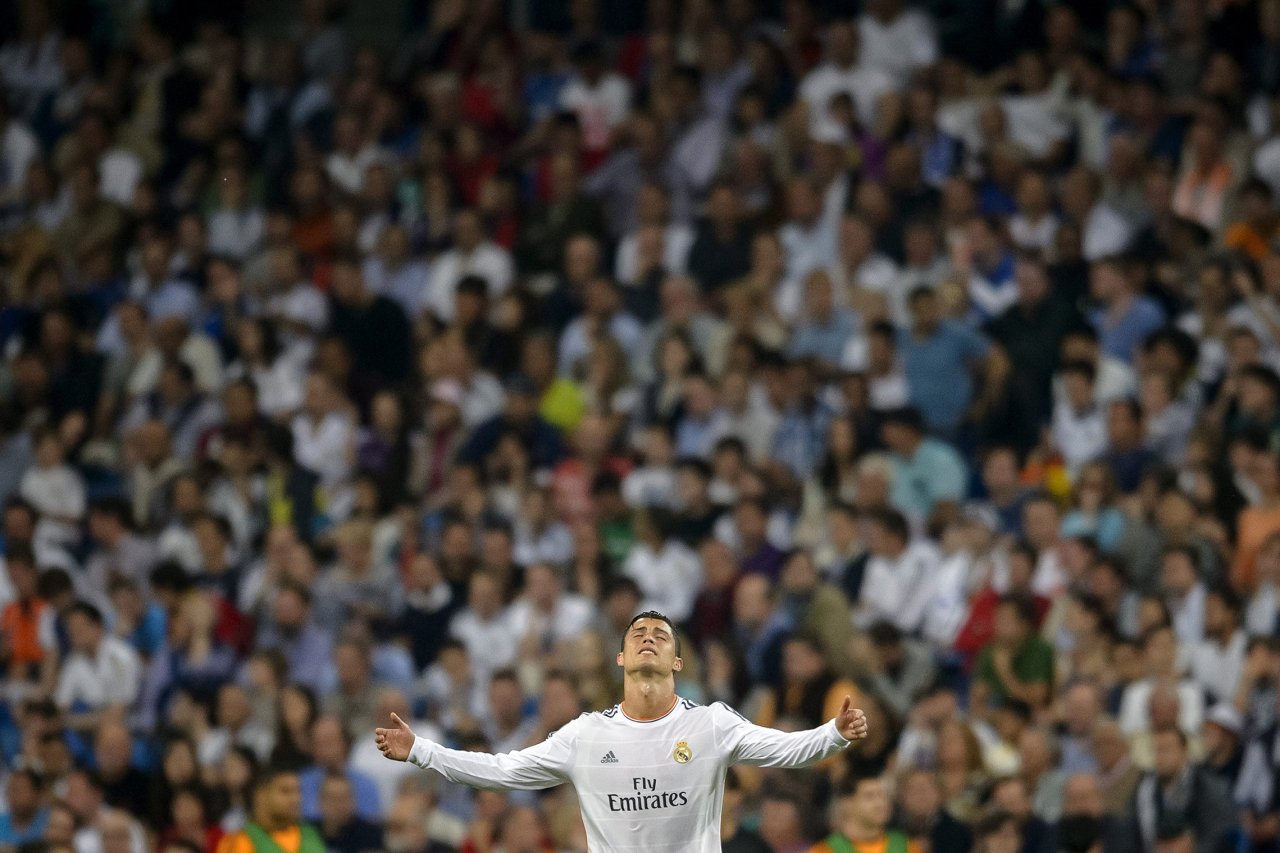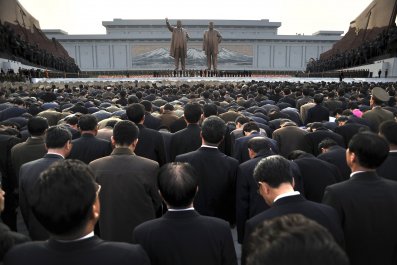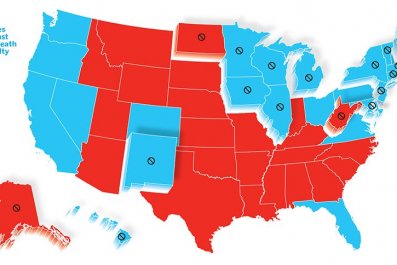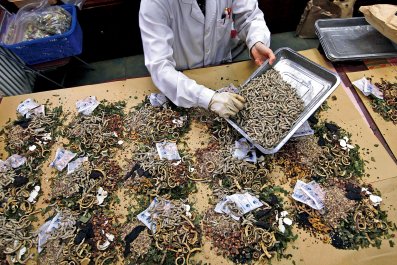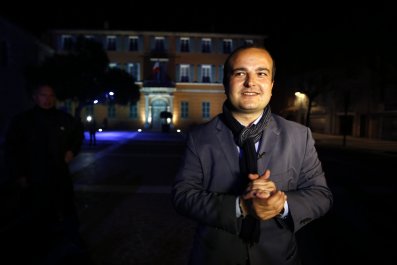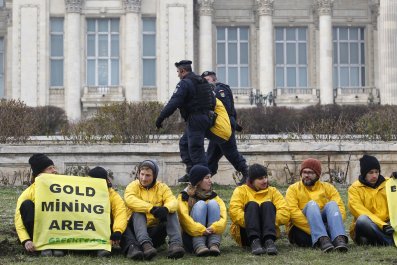Spain goes to next month's World Cup in Brazil as reigning champion, with a good chance of taking the trophy again. Yet the top Spanish soccer league is on its knees—crippled by billions of euros of debt and a string of scandals topped by the arrest last month of a former team owner charged with plotting a kidnapping.
The success of the Spanish team, which also won the last European championship, is the validation of a national obsession with the game that has meant ignoring decades of reckless management, spiraling debt and, in some cases, criminal behavior at league clubs.
"Because it's the national game, everyone tolerated a list of things that would never have been tolerated if they were normal companies," says Miguel Guillén, an olive oil trader who was asked by a bankruptcy court in 2011 to take over Real Betis in Seville and steer it out of insolvency. "The clubs knew that their fans wanted to win titles, and there were no consequences."
Consider the numbers: Since 2006, 22 of the 40 teams in the first and second divisions have applied for court-supervised bankruptcy hearings, and two teams are still in the process. According to officials at Spain's Professional Football League (LFP), at the end of the 2011–2012 season, those 40 top teams owed debts of a combined 3.75 billion euros, almost twice their annual revenues of 1.8 billion euros. The debt included 602 million euros in back taxes.
Like many Spanish companies that thrived on cheap and easy credit during the economic boom only to crumble when the banks closed the taps, Spanish soccer teams spent lavishly on players with no thought to the economic consequences. Local politicians who hold the purse strings at regional savings banks guaranteed credit to clubs, because no politician would risk the fallout of allowing a beloved soccer team to fold. Even tax officials were persuaded to postpone deadlines.
"The mentality was that if teams can negotiate with the tax office to delay payment, they can sign new players who will help win more games and titles, which will in turn increase revenues," says Guillén. "When I arrived at Betis, our players' salaries constituted 165 percent of our revenue. It all turned into a huge rolling snowball that eventually blew up in everyone's faces."
European soccer generates billions of euros in revenues. According to a January report by consulting firm Deloitte, the top 20 money-making teams (all European except for two Turkish teams) brought in 5.4 billion euros during the 2012–2013 season. Real Madrid led the list for the ninth-straight year with revenues of 519 million euros, followed by Barcelona with 483 million euros.
At some teams, the problems went beyond bad management. The heady combination of money and sporting glory has drawn more than a few crooks over the years.
"Being the president of the club offers you a social status unlike any other," says Guillén. "You are more important than the mayor, the regional president or even the prime minister. Now, most of them are doing the right thing, but there have been others who took advantage of the economic boom and their positions to make money for themselves. Here at Betis we had a president who thought he was above good and evil."
Guillén is referring to Manuel Ruiz de Lopera, Betis president from 1992 to 2006, who is now charged with siphoning about25 million euros from Betis into his own companies. In 2006, a court investigating team accounts convicted him of tax fraud and fined him around 4.1 million euros.
Another court is investigating Barcelona, which Forbes valued at $2.6 billion, the third most valuable soccer club in the world, for suspected tax evasion linked to the recent signing of Brazilian forward Neymar da Silva Santos Júnior. The case forced the resignation of the team president, Sandro Rosell, in January. In the same month, Spain's Supreme Court upheld the conviction of Josep Lluís Núñez, who presided over the Catalan team for 22 years, for bribing tax officials.
Just a few weeks later, in March, former Sevilla president José María del Nido began a seven-year prison sentence for embezzling 2.8 million euros from the city of Marbella on the southern coast. Another former Sevilla president, José María González de Caldas, was convicted in October of real estate fraud.
Racing de Santander, whose players refused to play a game in January to protest not being paid for four months, boasted one of the more colorful characters in the league—Ahsan Ali Syed, an Indian businessman who swooped in to save the team from financial collapse in 2011, flashing his private jet and a fleet of Mercedes cars and promising 15 million euros.
It was too good to be true. Syed ran investment firm Western Gulf Advisory (WGA), accused of scamming millions of dollars from investors in New Zealand and Australia in 2010 and 2011. Since then, banking authorities have frozen WGA accounts in Switzerland, and arbiters in Bahrain ordered that the firm pay one investor $3.6 million. A few months after promising to challenge Real Madrid and Barcelona, Syed welched and fled the country.
Atlético de Madrid, now in first place in the league, has a long history of scandal, much of it tied to former club president Jesús Gil, the brash mayor of Marbella, who died in 2004. Gil was the embodiment of the real estate scams, political corruption and organized crime that plagued the Costa del Sol in the 1990s, and was convicted several times.
Prosecutors are now investigating whether Madrid's regional government gave favorable advertising and television contracts to Atlético de Madrid's current president, Enrique Cerezo, at the expense of taxpayers. Cerezo was previously convicted in 2003 of being an accomplice in funds misappropriation when the team was converted into a company in the 1990s.
The murky dealings between government officials and soccer teams have also come under the scrutiny of European Commission antitrust investigators, who are examining whether Madrid and Valencia authorities violated state aid rules by giving preferential treatment to Real Madrid and Valencia soccer teams.
"If you look at the financial entities approving loans to soccer teams, they're all savings banks, which are run by politicians," says Rafael Baena, head of antitrust and European Union law at British law firm Ashurst in Madrid and an Atlético de Madrid season-ticket holder. "No serious bank would ever touch these deals because they're bad business."
Since 2009, when its debt was 550 million euros, Valencia has been controlled by Spain's fourth-largest lender, a conglomerate of seven savings banks called Bankia, which itself needed a 22.4-billion-euro bailout in 2012 and has been investigated by several courts for fraud. Bankia took over after team president Juan Bautista Soler hobbled the team's finances with a failed scheme for a new stadium. Since then, the new stadium is a half-built ruin, while the bank, as owner as well as creditor, is tryingto repay itself the 300 million euros it loaned to the team.
Soler re-emerged in the news in April when he was arrested for planning to kidnap his successor at Valencia, who owes Soler 39 million euros.
"It's astounding how tolerant we all are to this corruption," says Rubén Uría, a Spanish sports journalist with the Cope radio networkand Eurosport.
Of course Spain is not alone when it comes to financial mismanagement and crime in soccer. Uli Hoeness, the former star player and president of Champions League winner Bayern Munich, was sentenced in March to three and half years in prison for evading taxes worth 27 million euros.
In March 2013, the European Commission opened investigations into five Dutch teams for receiving illegal government subsidies. And Italy is currently looking into several allegations of match fixing.
Since 2011, Spanish soccer authorities have been trying to enforce stricter financial controls.
In April 2012, the LFP and the government set down new guidelines for teams. As of the 2014–2015 season, teams must sign over 35 percent of their audiovisual rights income to the LFP and this will be held against any outstanding debts with the tax office. The government's sports council will oversee the LFP and has the right to fire directors, impose fines and block state aid.
"There is a professionalism among management now that did not exist before," says Javier Gómez, corporate general director of the LFP and the head of financial control. "Nonetheless, we are determined to punish clubs that do not comply with the rules."
According to Gómez, teams will provide audited reports in April on the first half of the season's books. They will also hand in an estimate for the remainder of the season and for the following season. The LFP, he says, will now look at the balance and control what teams can spend on players' contracts.
In two seasons, Gómez added, teams have turned losses into profits and now they are working on reversing the debt-income ratio to manageable levels.
Gómez singled out the management at Betis for cutting debt by 60 million euros in three years. However, the team is mathematically guaranteed to finish last this season, prompting Guillén, a lifelong Betis fan, to resign as president in March.
"We had to adapt and manage the club like a company, adjusting to the economic realities and the club's capacity for generating income," Guillén says. "Ideally, we'd like to have a good balance between business and winning percentage, but it hasn't worked out this season. Unfortunately in soccer, a lot of people don't look past the wins and losses."



